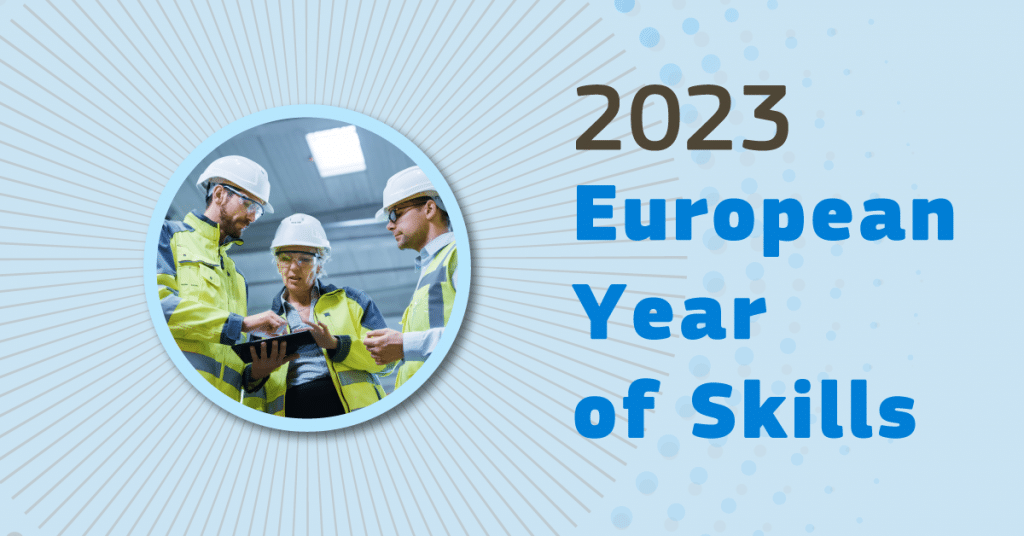Introduction
The green and digital transitions are offering new opportunities for people and the EU economy. Nowadays, skilled employees have better job opportunities and are more able to participate fully in society. Yet, many people are still unaware of the sector’s advancements and innovations.
To fill this gap, the European Commission has proposed 2023 as the European Year of Skills: this will be a chance to support lifelong learning, green and digital transitions. The project aims to assist companies and advance education, training, and upskilling opportunities.

The Importance of Skilled Workers
With the goal of meeting its 2030 social objectives, the European Union has launched a new initiative that will not only increase the participation of adults in training and work, but also support the achievement of the 2030 Digital Compass objectives.

The European Year of Skills 2023 emphasises the value of soft skills in the workplace. Therefore, before discussing the EU initiatives for the European Year of Skills, it would be beneficial to familiarize oneself with the Glore Network, a platform that certifies volunteer’s soft skills.
What is Glore Network?
The GloRe platform recognizes foreign and local volunteers to be recognised for the soft skills they have gained by volunteering, through a certification, and it includes 26 e-learning courses to aid in assessing these skills.
The GloRe Network, the platform’s parent organisation, strives to expand its reach globally and offer a flexible and reliable certification with worldwide recognition. The certification process, consisting of the Participation Certificate, GloRe Soft Skills Certificate, and Professional Statement, is available at no cost for volunteers in network organisations.
If you want to know more about the Glore Network, please visit the official website.
EU Initiatives to Support Skills Development
To improve skills development, the European Commission, in collaboration with several actors, will support:
- Increasing effective and inclusive investment in training and skill development;
- Ensure applicable skills for labour market demands through collaboration with social partners and businesses;
- Matching talents and goals with work possibilities, particularly for green and digital transitions and economic recovery;
- Attracting skills and talent from third-world nations via improving learning opportunities, mobility, and qualification recognition:
The European Year of Skills 2023 provides a chance for people all around Europe to focus on improving their technical and soft skills. Individuals can take advantage of this year’s resources and activities to invest in their futures and position themselves for success.
Read also
European Commission Launches Public Consultation on Europass
Forward-Looking Projects 2023: Innovative Approaches to Education and Training




